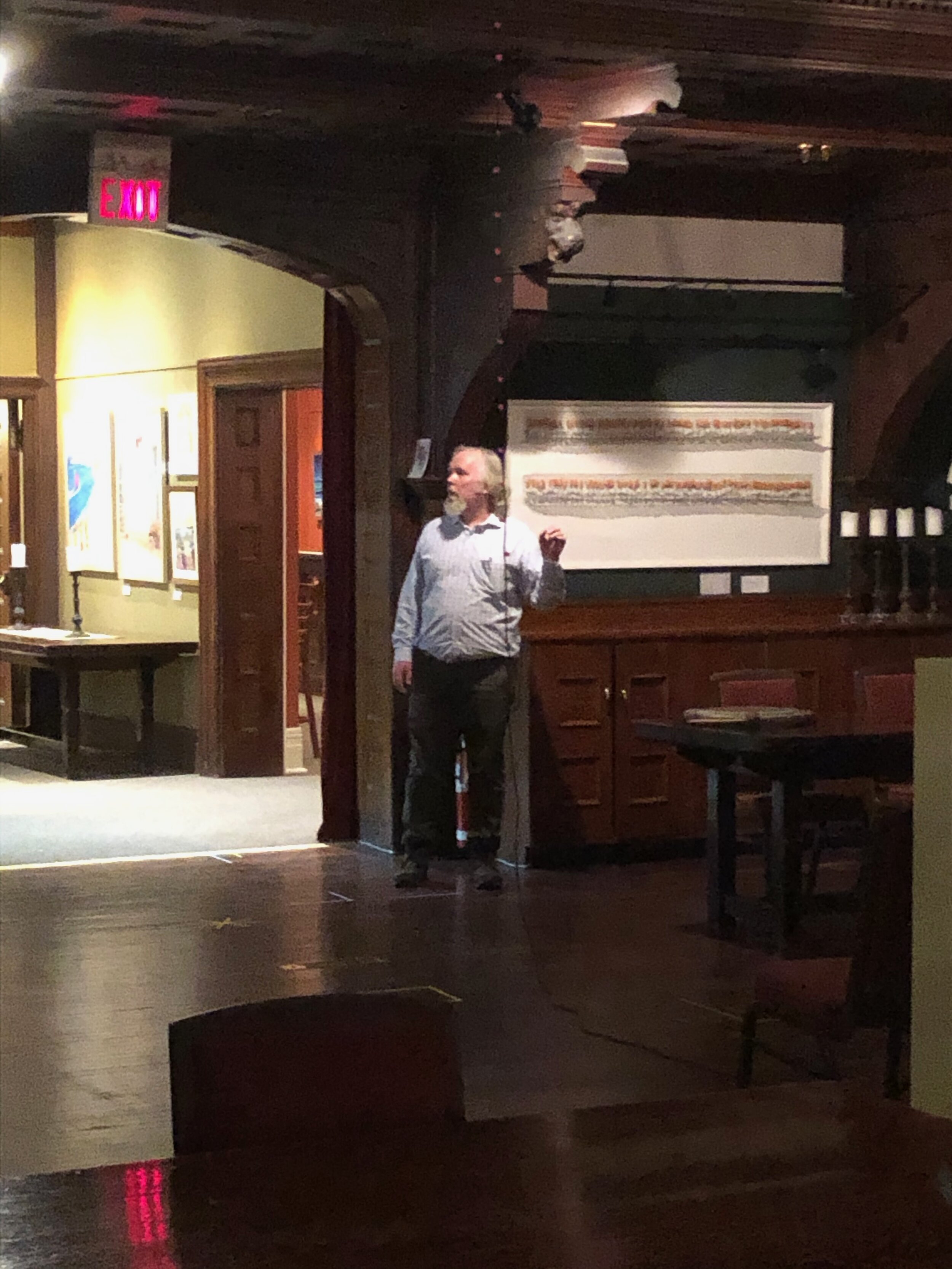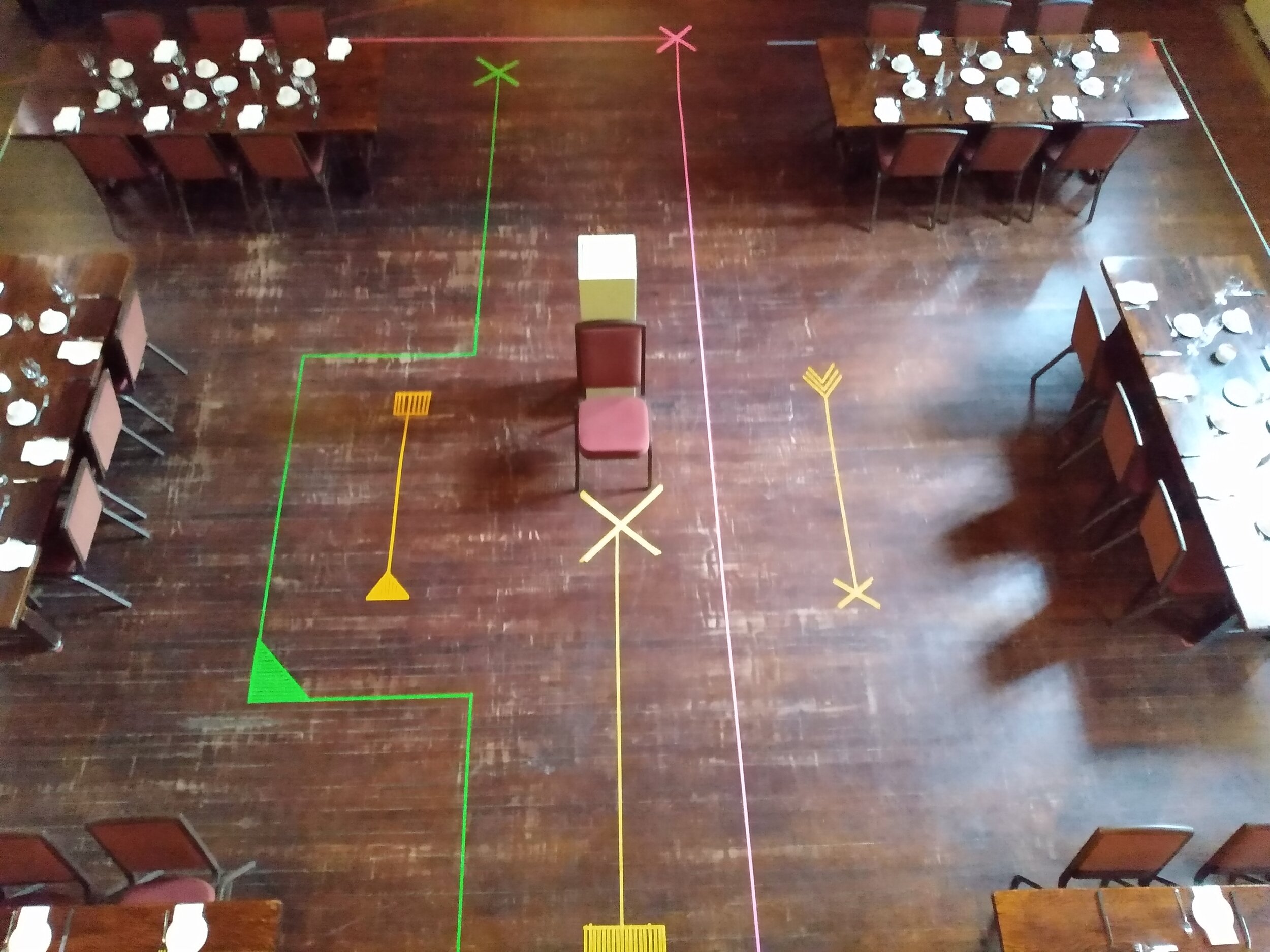Theatre Science, 2020
Theatre Science Experiment One, Arts and Letters Club of Toronto, photo credit William Denton
―
My artistic collaborator and research partner, William Denton and I developed Theatre Science, a series of theatrical experiments to address the limitations – lack of rehearsal time, issues with memorization of lines or blocking – that arise in our specific theatrical community, The Arts and Letters Club of Toronto. The initial research question was: “Can common limitations of amateur theatre – issues with memorization of lines, blocking, limited rehearsals – be overcome with processes of automation?" However, as the experiment developed, we began to appreciate the pedagogical applications of the method.
We collected data by moving people on stage using strategies like mapping out blocking on the floor with tape, handing out written instructions and projecting the blocking on the wall. We also implemented strategies such as using recorded instructions, sound and light cues, and headphone verbatim methods to guide participants through a performance. The goal was inclusivity: how can a wider variety of people participate in theatre, without the requirement of theatre training? The outcome is not intended to be highly polished theatre; rather, the project wants to invite more people to feel like they too can participate in theatre.
This data was used to devise a 40-minute score that was performed over two nights in the Arts and Letters Club’s Great Hall in February 2020. The performance audio was recorded.












